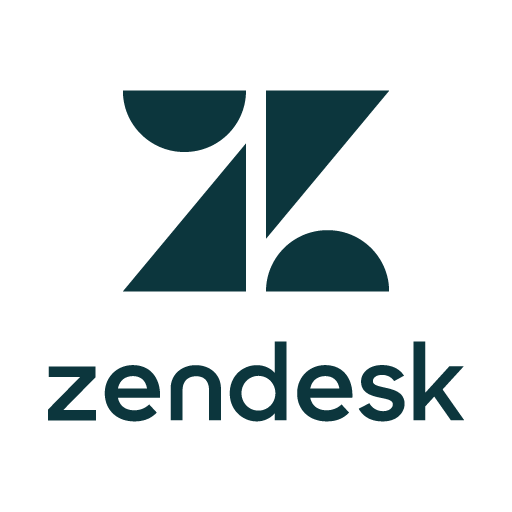
Pivoting From Social Media Aggregator To $6M/Month People Search Tool
Hello! Who are you and what business did you start?
My name is Harrison, and I am the CEO and Co-Founder of Spokeo. We are a people information service that helps over 15 million users a month to search and connect with others. Whether it’s finding long-lost families and friends, or helping people research before they date, we organize over 14 billion records into easy-to-understand reports so that we can make trust a little easier.

What's your backstory and how did you come up with the idea?
I studied both Electrical Engineering and Economics for undergrad at Stanford. I studied Electrical Engineering for a Master's at Stanford as well.
I started Spokeo in 2006 with several college roommates, including our CTO Mike Daly and CIO Eric Liang, in my parents’ basement. Spokeo was originally founded as a social network aggregator. We helped users manage the slew of social networks that were available at the time into one organized feed with their friends’ updates.
We had to change because we were running out of money. Social network aggregation might get traffic, but few people were willing to pay for the service. After we changed our site from selling ads to selling subscriptions, we realized that people were paying to search for others, not aggregating their own content.
We soon learned that users were actually finding our people search capabilities to be more helpful than the newsfeeds, so we pivoted to a social search engine in 2008 and entered into people’s search market in 2010. As the search capabilities of our product grew, so did our business, and here we are today, generating over $6M and helping over 15M users a month.
Spokeo has added a lot more data and searches features since the social search engine in 2008. We now aggregate over 14 billion records from white pages listings, property records, criminal records, and other public records to provide daily people intelligence for our users. More than 15 million users a month use Spokeo to search and connect with others.
The two clusters of Spokeo use cases are (1) Connectors, and (2) Protectors. Connectors use Spokeo to find their long-lost family members or friends or to find new sales leads. Protectors use Spokeo to research people like their dates or fight fraud, making sure that people are who they say they are.
Spokeo gets its data from reputable data partners who aggregate public records, as well as the public web. We respect different people might feel differently about privacy, so we offer the industry's easiest opt-out and CCPA-compliant features. We are also building identity management and protection features that will be launched later this year.
Over the years, I’ve learned to always take a deep breath when confronting a big surprise, and a good night’s sleep always helps me get prepared for the next day’s fight.
Describe the process of launching the business.
Unlike most Internet startups from Silicon Valley, we were self-funded. It was not that we dislike venture capitalists; rather, it was difficult to secure funding right after college prior to the movie “The Social Network”. The only investors willing to blindly trust a couple of newbies were my parents and relatives.
We almost ran out of money twice in 2008 before we found a sustainable business model.
We tried monetizing our service through ads, but we were generating about $4 a day, which was enough for a Starbucks coffee, but not enough to keep the lights on.
Social data might get a lot of traffic and page impressions, but it was not as valuable as professional content. As ad technology becomes more sophisticated, not all pages are valued equally, and we were not able to get good CPMs for our type of content - hence $4/day.
When I asked my dad for more money and apologized for being a bad son, he first told me that he had written the investment off when he first gave it to me. He also told me that winning is not about whether you’ve gone to Stanford, but rather who could last the longest. We listened, and we’ve been thriving since then.
Since launch, what has worked to attract and retain customers?
New startups need to find product-market fit before running out of cash, so it is paramount to quickly iterate on both product and marketing initiatives. For example, we started our customer acquisition efforts with paid Google Search Engine Marketing (SEM) because it was easier to get started and make changes; whereas, Search Engine Optimization (SEO) takes much longer to set up and optimize.
When we were a social network aggregator, our main competitor was FriendFeed. We didn't have much competition because it was a new niche.
When we entered the people's search space, there was a lot of competition since it is a very big market with a lot of established players, such as WhitePages.com, Intelius, and PeopleFinders.com. We had to start small, offer something unique, and work our way up.
We found our initial product-market fit with the social search capability. We then added other capabilities like reverse phone lookup, people search and address search to expand to other market verticals. People search is a unique, “long tail” market with a wide variety of customer use cases. Therefore, we have to scale our paid marketing campaigns to include more than 500K keywords over time. Just like the beginning, it takes a lot of trial and error to find product-market fit in different market verticals, so we need to remain agile to scale.
Having the right attitude is more important than knowing the right answer.
Through starting the business, have you learned anything particularly helpful or advantageous?
What I’ve learned from entrepreneurship is that the only thing that doesn’t change is “change” itself. When we first started, there was a social network for everyone such as music lovers, pet owners, manga readers, and athletes. As Facebook grew and dominated, it rendered our original social network aggregator concept useless, and we had to pivot. When we found out that selling ads only made $4 a day, we had to change our business model to digital subscriptions. When it became clear that cloud computing would be the future, we had to migrate from data centers and decommission servers worth hundreds of thousands of dollars.
It takes a lot to learn how to embrace and appreciate change. Over the years, I’ve learned to always take a deep breath when confronting a big surprise, and a good night’s sleep always helps me get prepared for the next day’s fight.
What platform/tools do you use for your business?
Spokeo’s first core value is to “listen with empathy”, so we always listen to both our customers and teammates for their feedback. We primarily use Mopinion to gather customer feedback, identify bug reports and test new product ideas. We use SurveyMonkey for email surveys and customer satisfaction surveys. And we use Zendesk to manage our customer communications and provide Help Desk articles. Our customers can also call us 7 days a week, and we use Amazon Connect for our call center.
For internal cultural feedback, we primarily use TinyPulse to constantly monitor the pulse of our teams’ morale. We use both SurveyMonkey and Google Forms when we need more in-depth feedback. Since different tools solve different needs, we use whatever tool appropriate to help us better listen to our customers and teammates.
What have been the most influential books, podcasts, or other resources?
I regularly read the Harvard Business Review to keep up with the latest case studies and management best practices. I also like to listen to Guy Raz’s How I Built This podcast where he interviews other founders about how they started their business. A personal favorite is his interview with Tony Hsieh, CEO of Zappos. My favorite Tony Hsieh's quote from that interview is “Zappos is a customer service company that happens to sell shoes,” which illustrates the company’s almost obsessive focus on serving customers. Our award-winning customer service team is also focused on exceeding our customers’ expectations.
Advice for other entrepreneurs who want to get started or are just starting out?
Having the right attitude is more important than knowing the right answer. There's an old saying, usually attributed to Confucius, that goes something like "Give a man a fish, and you'll feed him for a day. Teach a man to fish, and you've fed him for a lifetime.” In that analogy, the solution would be the fish, while the fishing pole is the attitude. Finding a solution to a single problem is short-term, but having the right attitude will set you up for long-term success.
Are you looking to hire for certain positions right now?
Of course, we are always looking for people who are passionate, humble, and intellectually curious to help achieve our mission of making the world around us more transparent. We are particularly in need of talents in Data Engineering and Product Management disciplines. Please visit our careers page to see a full list of open positions.
Where can we go to learn more?
If you have any questions or comments, drop a comment below!

Download the report and join our email newsletter packed with business ideas and money-making opportunities, backed by real-life case studies.

Download the report and join our email newsletter packed with business ideas and money-making opportunities, backed by real-life case studies.

Download the report and join our email newsletter packed with business ideas and money-making opportunities, backed by real-life case studies.

Download the report and join our email newsletter packed with business ideas and money-making opportunities, backed by real-life case studies.

Download the report and join our email newsletter packed with business ideas and money-making opportunities, backed by real-life case studies.

Download the report and join our email newsletter packed with business ideas and money-making opportunities, backed by real-life case studies.

Download the report and join our email newsletter packed with business ideas and money-making opportunities, backed by real-life case studies.

Download the report and join our email newsletter packed with business ideas and money-making opportunities, backed by real-life case studies.














